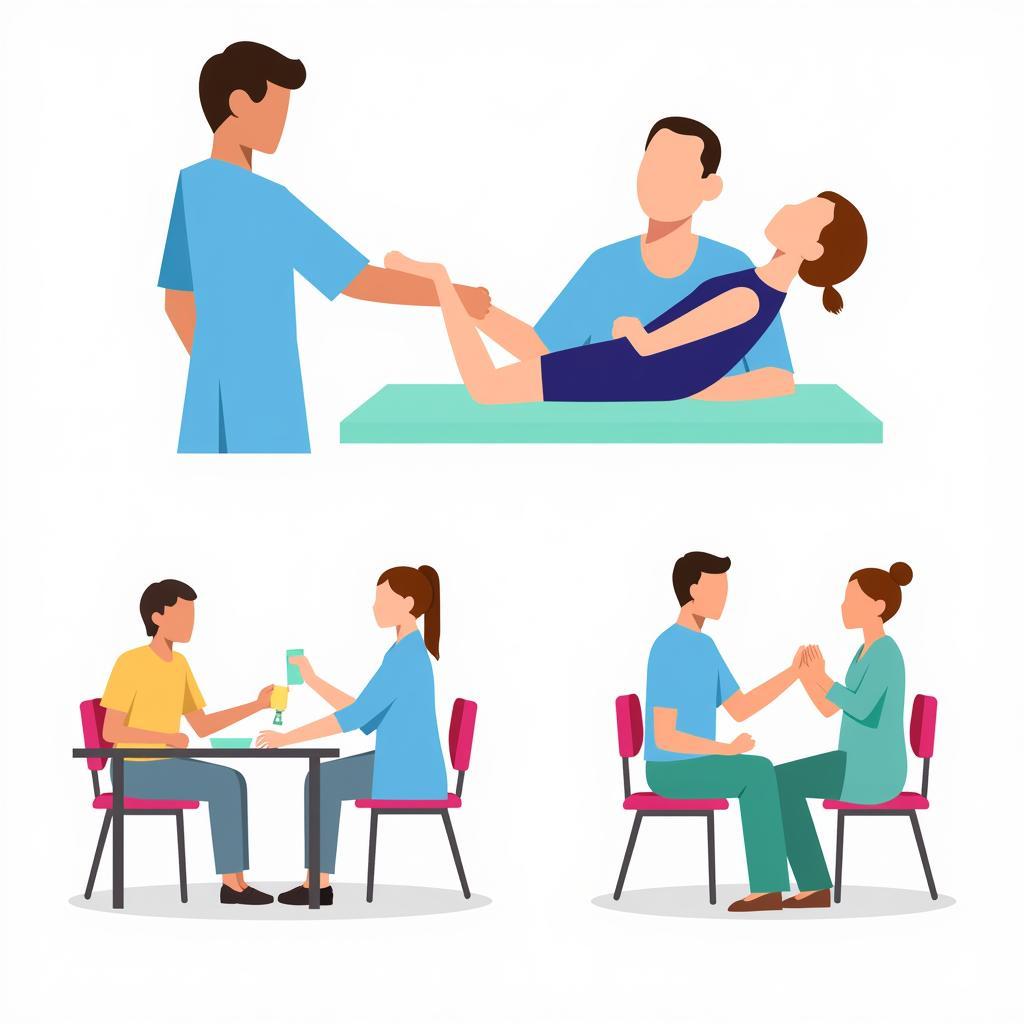Rehabilitative care rehabilitation service, often simply called rehab, focuses on restoring function and improving quality of life for individuals facing physical, cognitive, or emotional impairments. This can result from injury, illness, or chronic conditions. Rehab aims to help people regain independence and participate fully in their lives.
Rehabilitative care encompasses a broad spectrum of services tailored to individual needs. These services are delivered by a multidisciplinary team, including physicians, nurses, therapists, and other healthcare professionals. The goal is to address the specific challenges a person faces and equip them with the tools and skills needed to live their best life possible. Want to know more about health care services? See what is meant by health care services.
Different Types of Rehabilitative Care
There are various types of rehabilitative care, each designed to address specific needs:
- Physical Rehabilitation: This type of rehab helps individuals regain physical function after an injury or illness, such as a stroke, fracture, or surgery. It focuses on improving strength, mobility, balance, and coordination.
- Occupational Therapy: Occupational therapy assists people in performing daily tasks, such as dressing, bathing, and cooking. It adapts activities and environments to promote independence.
- Speech Therapy: Speech therapy addresses communication and swallowing difficulties. It can help individuals regain lost speech abilities or develop alternative communication methods.
- Cognitive Rehabilitation: This type of rehab helps individuals improve cognitive functions, such as memory, attention, and problem-solving, often after a brain injury or stroke.
- Cardiac Rehabilitation: Cardiac rehabilitation helps individuals recover after a heart attack or other cardiac event. It focuses on improving cardiovascular health and reducing risk factors.
Who Benefits from Rehabilitative Care?
A wide range of individuals can benefit from rehabilitative care, including:
- People recovering from injuries: Accidents, falls, and sports injuries can necessitate rehab to regain full function.
- Individuals with chronic conditions: Conditions like arthritis, multiple sclerosis, and Parkinson’s disease can benefit from ongoing rehab to manage symptoms and maintain independence.
- Stroke survivors: Rehab plays a crucial role in stroke recovery, helping individuals regain lost abilities.
- People with disabilities: Rehab can empower individuals with disabilities to achieve their highest level of independence.
- Post-surgical patients: Rehab can aid in recovery after surgery, improving mobility and reducing pain.
What is the Goal of Rehabilitative Care?
The primary goal of rehabilitative care is to help individuals achieve their optimal level of functional independence and quality of life. This involves addressing physical, cognitive, and emotional well-being. For a broader understanding of care services, explore a.continuum of careb.episode of carec.services of cared.settings of care.
How is Rehabilitative Care Delivered?
Rehabilitative care can be delivered in various settings, including hospitals, rehabilitation centers, outpatient clinics, and even at home. The setting depends on the individual’s needs and the intensity of the required therapy.
Finding the Right Rehabilitative Care
Finding the right rehabilitative care is crucial for successful recovery. Discuss your needs with your doctor and research different facilities and providers to find the best fit for your situation. Check out what do you mean by health care services for more information.
Conclusion
Rehabilitative care rehabilitation service is essential for individuals facing physical, cognitive, or emotional impairments. By focusing on restoring function and improving quality of life, rehab empowers people to regain independence and live fulfilling lives.
FAQ
- How long does rehabilitative care typically last?
- What are the key components of a successful rehabilitation program?
- How can I find a qualified rehabilitation specialist?
- What should I expect during my first rehabilitation session?
- Is rehabilitative care covered by insurance?
- What is the difference between rehabilitation and physical therapy?
- How can family members support someone undergoing rehabilitation?
Common Rehabilitative Care Scenarios
- Post-stroke rehabilitation: Regaining lost motor skills and speech.
- Sports injury rehabilitation: Returning to athletic activity after an injury.
- Traumatic brain injury rehabilitation: Improving cognitive function and independence.
Further Exploration
Explore other related articles on our website for more in-depth information on specific conditions and rehabilitation approaches.
Need help? Contact us via WhatsApp: +1(641)206-8880, Email: [email protected]. We have a 24/7 customer support team ready to assist you.



